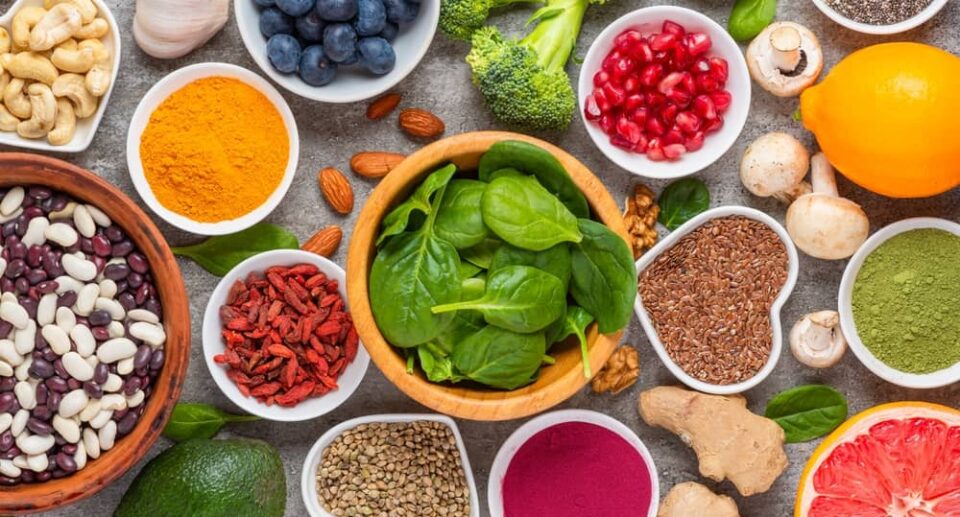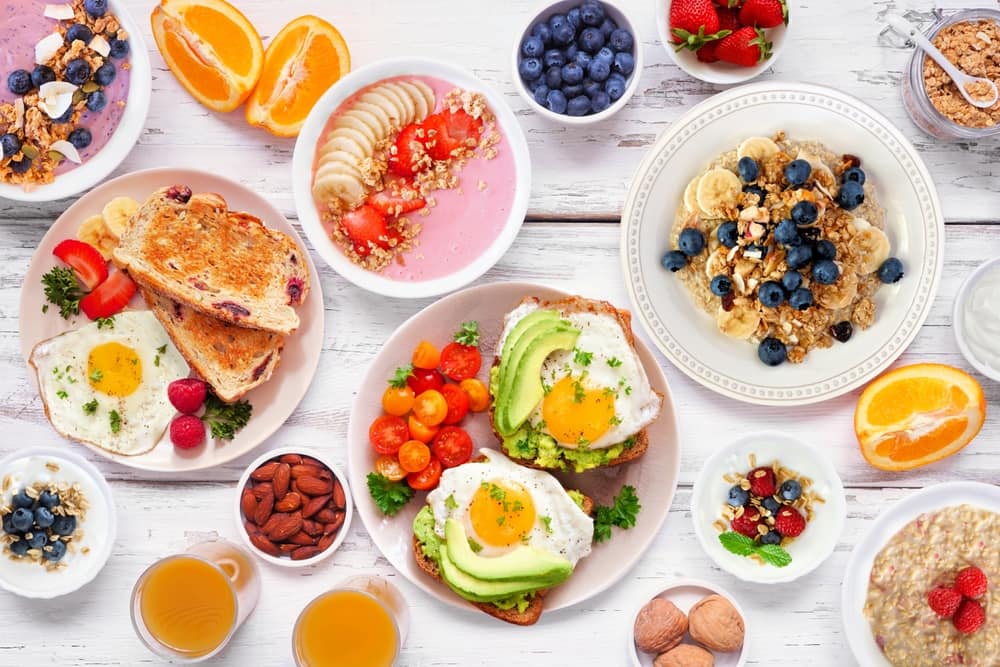Best whole foods to add to your daily diet
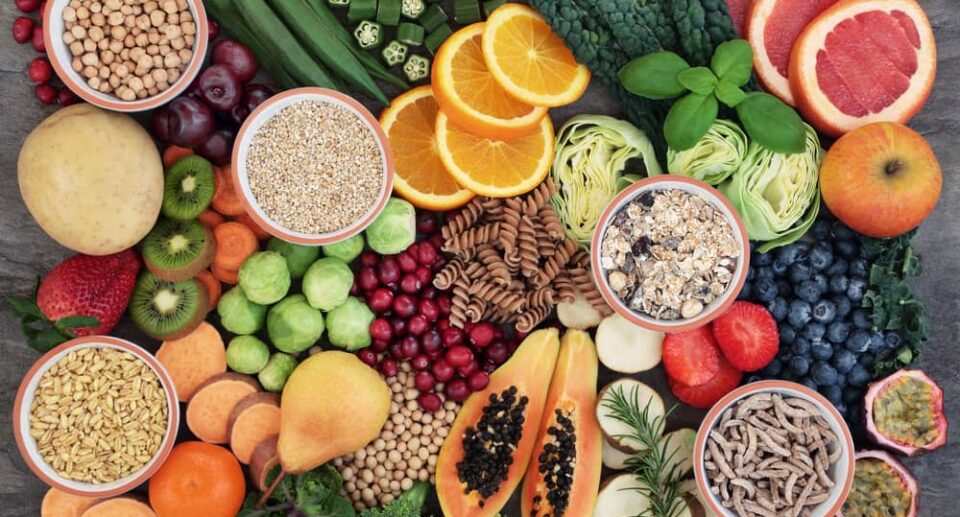

We always focus on natural foods, which are very good for us, but they also protect our bodies from unnecessary food and increase the sugar in our food. Whole foods are the complete opposite of packaged foods. Whole foods are not cooked, so they are not high in sugar. They are a silent attack. Sugary packaged foods are high in sugary foods that harm our bodies. But whole foods contain many nutrients that are fiber-rich and vitamins-rich. These whole foods help boost the body’s immune system and aid digestion.
Whole foods, succulent fruits, green vegetables, less fats and carbohydrates, and a wide variety of nuts and seeds are fresh and do not contain other substances. They are abundant in fibers, vitamins, and minerals, and they improve immune function and increase energy levels.
Switching to whole foods is not a big deal. By making small, consistent changes, such as replacing white bread with whole grains or replacing them with added sugars, you can significantly improve your overall health. Whole foods assist in weight loss and chronic risk reduction including, for instance, heart disease, diabetes, and obesity.
“Eating a diet rich in whole foods such as fruits, vegetables, whole grains, nuts, and legumes is associated with a significantly lower risk of chronic diseases like heart disease, diabetes, and certain cancers.”-Harvard T.H. Chan School of Public Health
Benefits of Whole Foods
Boost Immunity: Many whole foods contain antioxidants and vitamins that strengthen the immune system.
Improve Digestion: Foods rich in fiber and probiotics improve gut health.
Improve Brain Function: Some whole foods support cognitive health and mental clarity.
Support Heart Health: Some whole foods help lower cholesterol and blood pressure.
Help with Weight Management: Nutritious foods keep you fuller longer and reduce hunger.
What is a whole foods diet food list?
A diet of whole foods does not have any specific meal plan. You can do it in a variety of ways. For example, you can eat homemade fries instead of packaged potato chips. Eat homemade grilled chicken instead of a restaurant meat item. Eating whole foods that are made at home will keep your body healthy and beautiful.
What Whole Foods to Eat
1. Berries
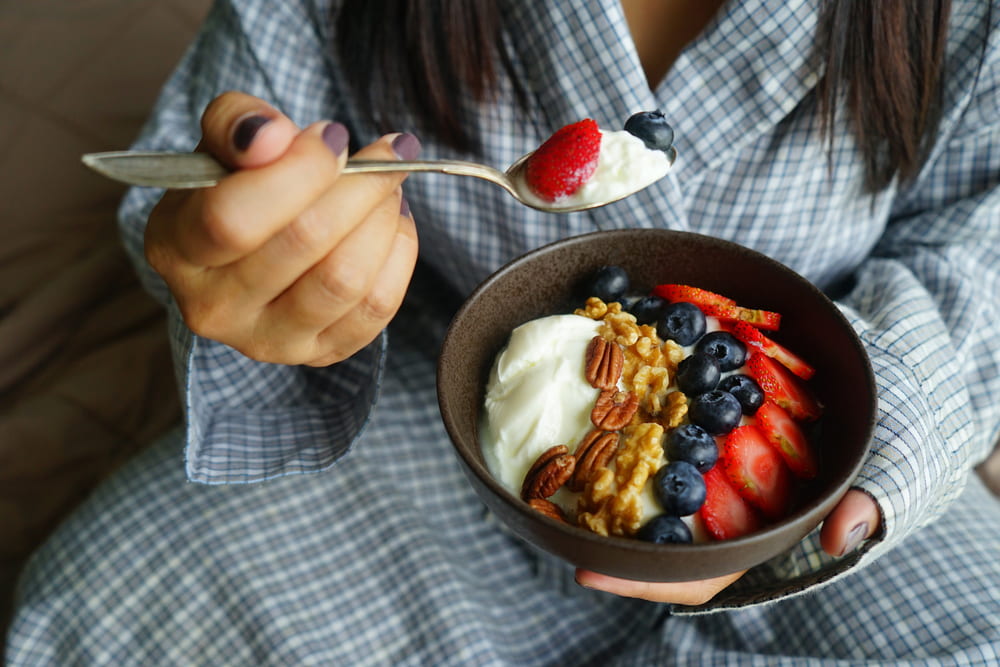

Blueberries, strawberries, and raspberries contain antioxidants, fiber, and vitamin C. They help reduce inflammation, support heart health, and improve brain function.
How to use:
- Add to smoothies or yogurt.
- Sprinkle on oatmeal or salad.
- Eat as a healthy snack.
2. Leafy greens
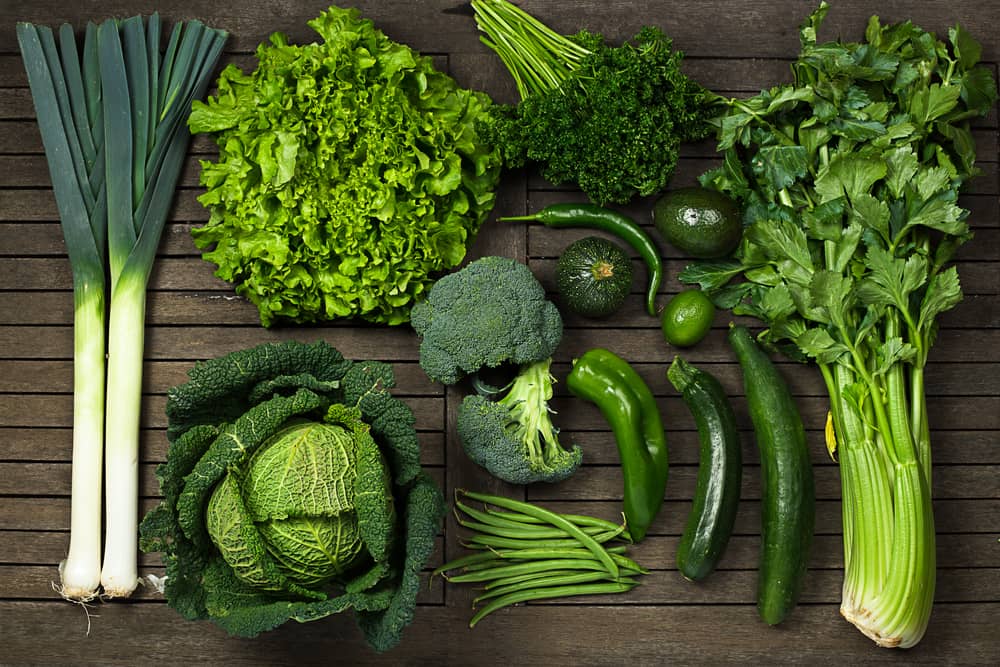

Vitamins A, C, & K, fiber, and iron are packed in spinach, kale, and Swiss chard, which means they are packed with nutrients. They also help maintain the health of the eye and bone and the digestion function.
How to use:
- Mix into smoothies.
- Sauté with garlic and olive oil.
- Add to soups or omelets.
3. Nuts and seeds
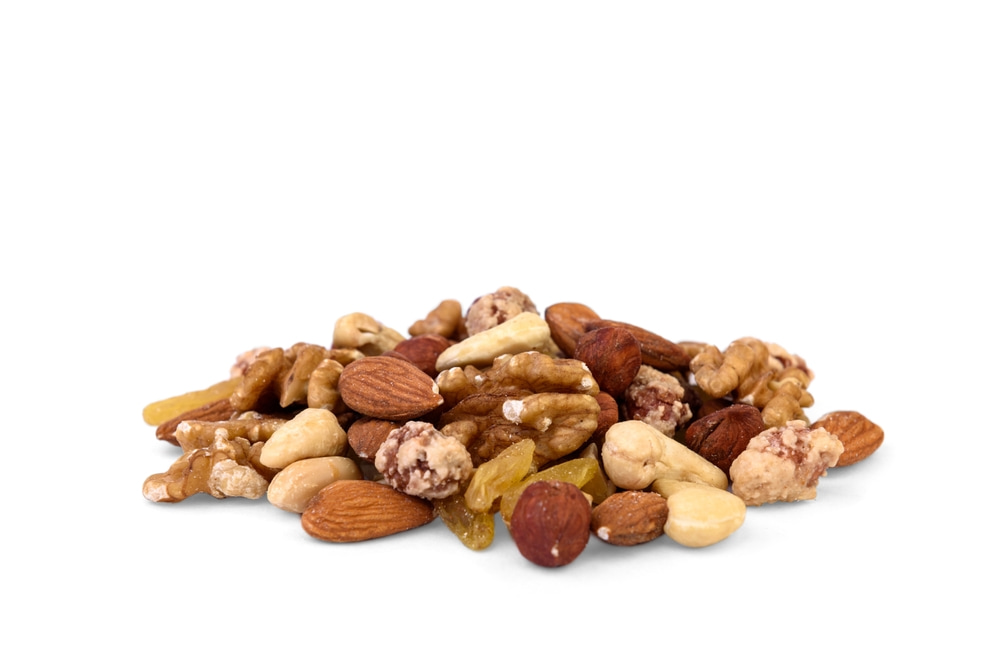

Almonds, walnuts, chia, and flax seeds provide healthy fats, protein, and essential minerals. They improve heart health and improve brain function.
How to use:
- Sprinkle on salads or yogurt.
- Blend into smoothies.
- Use as a topping for oatmeal.
4. Whole grains
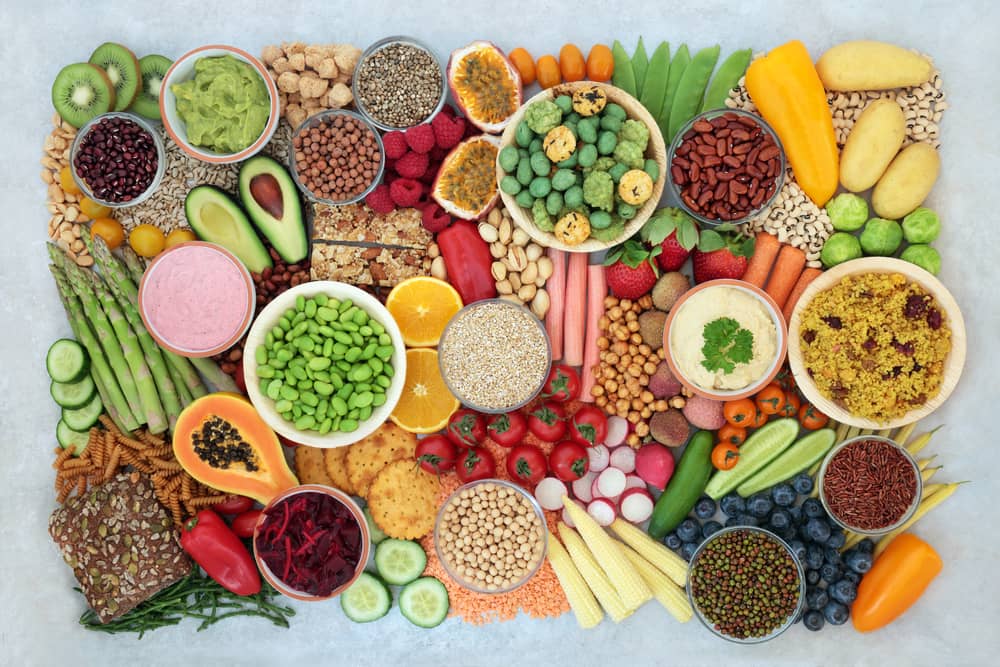

Whole grains, fiber, and micronutrients that act as an energy source and promote digestion and heart health are beneficial. Contrary to refined grains devoid of nutritional sources, whole grains possess their bran, germ, and endosperm, making them an absolute superfood of nutrients.
Examples of whole grains:
Brown rice: A high-fiber alternative to white rice that aids in digestion.
Quinoa: A protein-rich grain that contains all nine essential amino acids.
Oats – Great for heart health and a great source of beta-glucan fiber.
Whole wheat bread and pasta – A better alternative to refined versions, providing more fiber and nutrients.
Barley – Aids in digestion and helps control blood sugar levels.
Farro and bulgur – nutritious, ancient grains that provide a chewy texture and rich flavor.
How to add whole grains to your diet:
- Trade out white rice for brown rice or quinoa in your meals.
- Enjoy a bowl of oatmeal for a fiber-rich breakfast.
- Choose whole-wheat bread, pasta, or tortillas instead of refined bread.
- Add barley or farro to soups and salads for extra texture and nutrition.
- Make homemade granola or energy bars using oats and nuts.
5. Fatty fish


Oliver and his friends have been waiting for this Saturday for weeks. They have already planned everything and can’t wait to have a lot of fun and an awesome time.
For a tasty main course, grilling or baking is a good option.
- Add to salads or wraps.
- Use in sushi or poke bowls.
6. Avocado


A healthy, balanced diet and consumption of healthy products are expected to improve well-being.
Directions:
- Spread on toast.
- Blend into smoothies.
- Add to salads or sandwiches.
7. Fermented foods
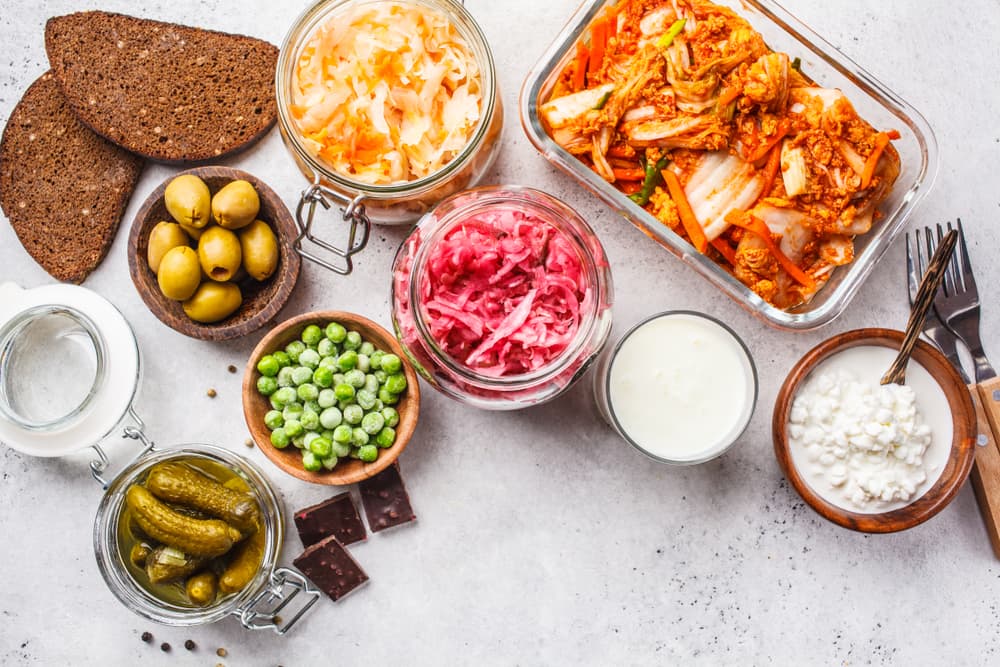

A good source of probiotics is fermented foods that positively affect the gut by boosting beneficial bacteria. An effectively working gut is required for digestion, immune systems, and stress management. Moreover, such foods raise nutrient absorption; thus, they are essential to a well-balanced diet.
Examples of fermented foods:
Yogurt: A highly skillful provider of probiotics and protein is the one that benefits healthful digestion and the bones.
Kimchi is a spicy, fermented Korean dish with beneficial bacteria and vitamins.
Sauerkraut: Helps in digestion and improves immunization of fermented cabbage.
Kefir is a probiotic-rich fermented milk drink for gut and bone health.
Miso: A Japanese condiment, natto, made from fermented soybeans, fully embracing all the nutrients, is essential for life.
Tempeh: A protein-rich, fermented soybean product that promotes gut health.
How can I become more active in my daily life?
Enjoy yogurt as a snack or breakfast with berries and nuts.
Add kimchi or sauerkraut to your meals as a savory side dish.
Drink kefir or blend it into smoothies for a probiotic boost.
Use miso paste in soups and dressings for extra flavor and nutrition.
Add tempeh to stir-fries, salads, or sandwiches for a plant-based protein source.
8. Green Tea


Antioxidants present in green tea contribute to increasing the metabolism and, at the same time, nourishing the brain and heart.
- Drink hot or iced.
- Use as a base for smoothies.
- Add to homemade lattes.
Incorporate these healthy foods into your diet. Reduce your reliance on packaged foods and focus on home-cooked meals. Including more whole foods in your daily diet plan is one of the best ways to naturally improve your health. You can maintain a balanced diet and long-term wellness by focusing on nutrient-dense, minimally processed foods.
Start with small meals, and gradually build a sustainable, healthy diet that nourishes your body daily!





